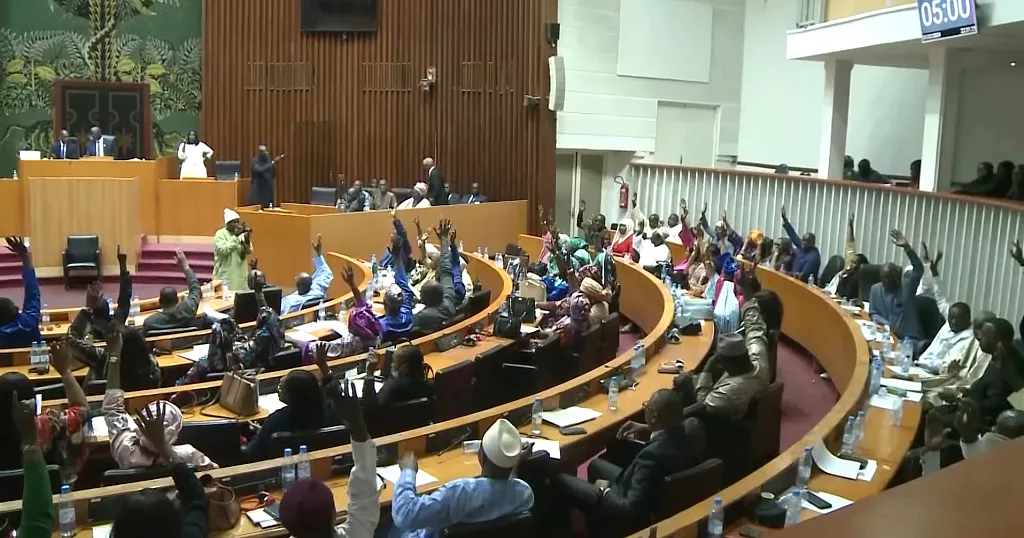
Senegal’s National Assembly approved sweeping changes to its internal regulations with an overwhelming majority, 138 votes in favor and only one abstention.
The reforms, touted as efforts to boost efficiency and transparency within parliamentary operations, have now been partially invalidated by the Constitutional Council, which struck down four critical articles.
This ruling has ignited frustration within the ranks of PASTEF, the parliamentary group currently holding the majority.
Since their electoral victory, PASTEF deputies have moved swiftly, passing nearly fifteen laws in less than eight months.
Their agenda signals a break from the perceived inertia of previous legislative sessions, embodying a spirit of rapid reform.
Yet, the Constitutional Council’s repeated vetoes—first nullifying a law intended to enable prosecution of alleged violence perpetrators against patriotic activists, and now annulling a clause mandating the compulsory summoning of magistrates before inquiry commissions—have stalled the momentum.
Amadou Ba, president of the PASTEF parliamentary group, expressed disappointment over the council’s rulings. “These decisions have slowed the reformist momentum desired by the deputies,” he said, underscoring the impact on legislative progress.
However, Ba emphasized respect for the Constitutional Council’s role and the constitutional framework. “Despite our commitment, deputies cannot go beyond what is permitted by the Constitution, of which the Council’s decisions constitute the essential foundation,” he explained. He noted that PASTEF has consistently demonstrated institutional loyalty by submitting reforms for constitutional review and accepting rulings, even when they conflict with their political aims.
The Constitutional Council, by interpreting the legality of laws affecting institutional balances—such as parliamentary powers and judicial independence—has become an implicit political arbiter. Its judgments delineate the boundaries of parliamentary action, compelling legislators to recalibrate ambitions within legal limits.
This tension reflects a broader challenge in Senegal’s political landscape: balancing urgent demands for reform with the rigidity of constitutional safeguards. As the country navigates this transition, the frustration voiced by PASTEF parliamentarians captures the delicate interplay between the drive for change and the constraints of established law.



